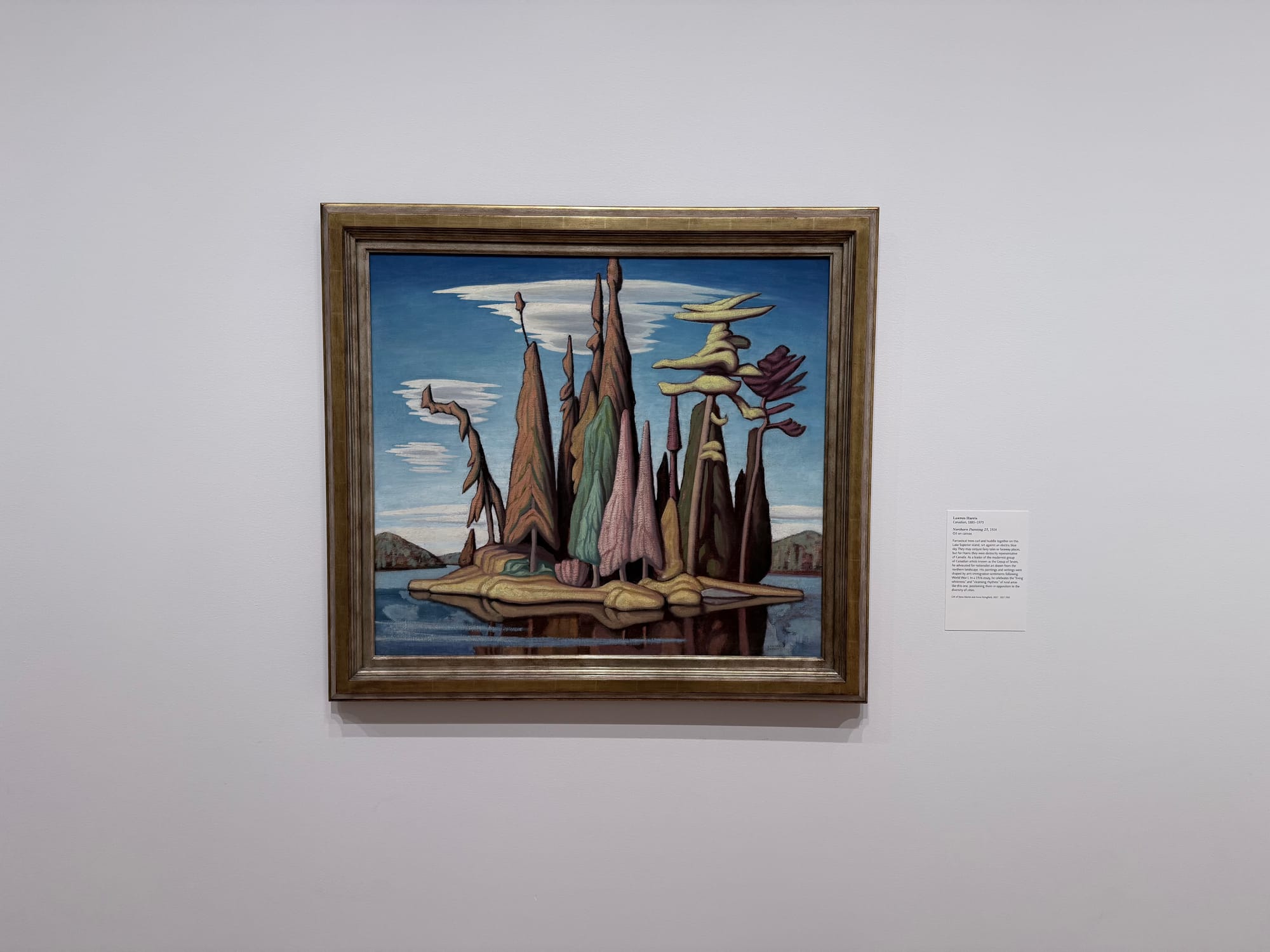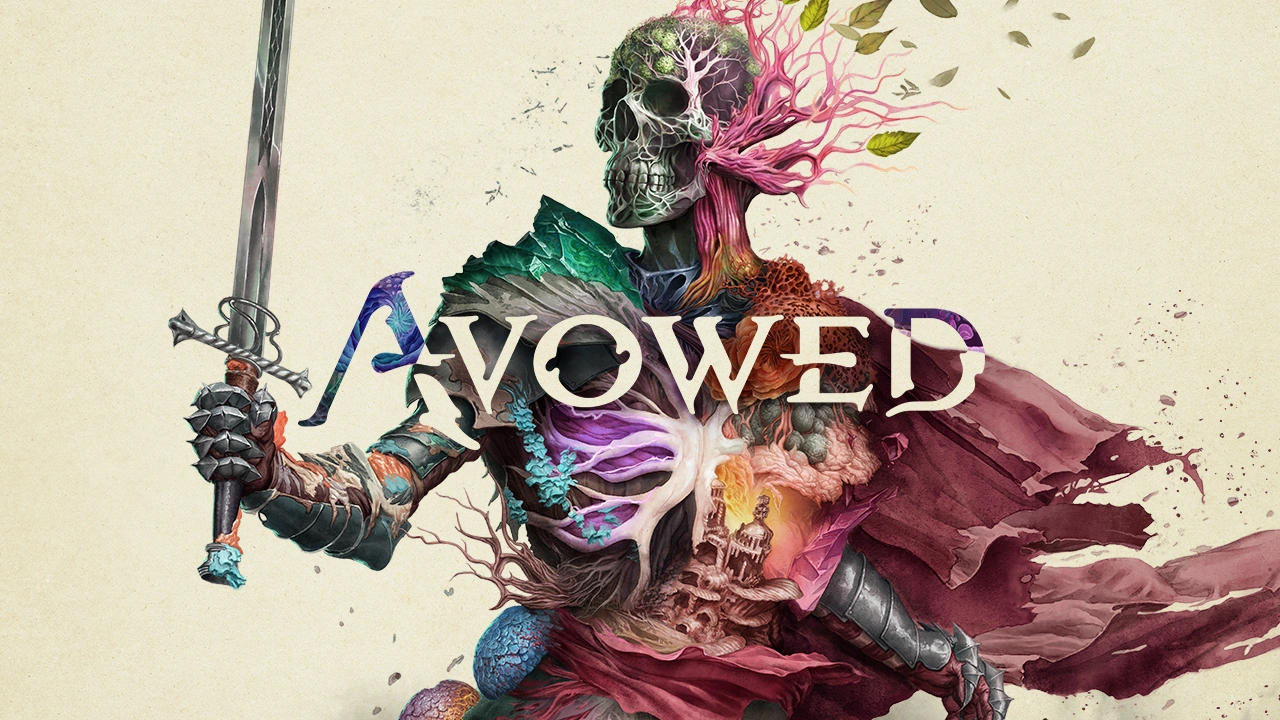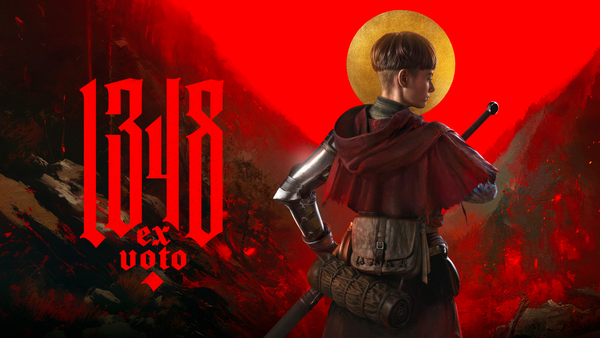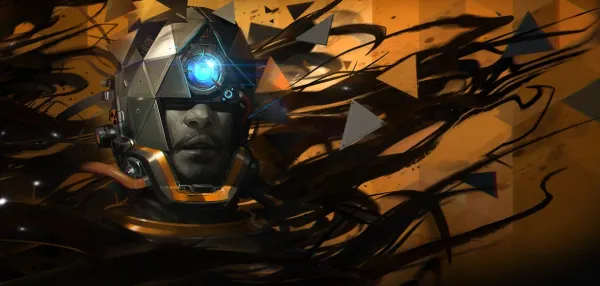Art is problematic. So what?
On my recent trip to the Museum of Fine Art in Boston, I spent a few hours wandering the halls, browsing and reading the placards. I was there to grab some footage (and inspiration) for my always-in-progress Avowed video about imperialism, empire, and surrealism. The MFA doesn’t have many pieces of surrealism, but a large segment of the museum is dedicated to colonial era artwork of local artists.
That said, there are a few pieces that stopped me in my tracks enough to do the typical stand-and-look-ponderous-at-a-canvas pose, then read some information about the artist. There’s one particular piece I enjoyed that had these whimsical, melting-looking trees on a blob-like island. It was weird. I liked it.

After admiring it for the required fifteen seconds, I leaned in closer to read the information card. Northern Painting 25 by Lawren Harris, a Canadian painter. The piece was a gift of Steve Martin and Anna Stringfield in 2017. That’s interesting. The placard also gave some information on Harris, which I’ll quote here:
As a leader of the modernist group of Canadian artists known as the Group of Seven, he advocated for nationalist art drawn from the northern landscape. His paintings and writings were shaped by anti-immigration sentiments following World War I. In a 1926 essay, he celebrates the “living whiteness” and “cleansing rhythms” of rural areas like this one, positioning them in opposition to the diversity of cities.
So yeah, the dude who made these trees I like sure seems like he sucked.
But does that make the painting suck in retrospect? Does knowing that Steve Martin and Anna Stringfield paid money for this painting change how I feel about them now? And do I feel differently about the ticket price I paid to enter this museum, its value being used to maintain and preserve the art of a Canadian white nationalist (and don’t get me started with the ancient artifact wing)?
Well, that’s complicated. Yes, to some degree, but also, art is art and should be discussed within its context. We can’t push things away simply because the guy who made it sucked. This is what many a jerk on the internet will tell you is nuance.

I’ve been having a bit of a personal back and forth the past few weeks specifically about this Avowed video. Avowed is a 2025 video game made by Obsidian Entertainment, a studio that is part of Xbox Game Studios, which is a division run by Microsoft. Microsoft, if you’re not aware, is currently a boycott target of the BDS Movement, urging Xbox users specifically to boycott Xbox Game Pass, avoid purchasing Xbox devices, and to avoid or seek alternate means to purchase Xbox games that don’t directly pay Microsoft. The BDS Movement’s boycott is a collective consumer action meant to protest Microsoft for its ongoing participation in the genocide in Gaza. You can learn more about the BDS Movement and the Xbox boycott here.
Much like Lawren Harris’ painting, I’m left wondering where the line is. I personally think that Avowed is an incredible video game saying some smart and important things about empire, imperialism, native cultures, and resistance. But I’m also aware that discussing how well Avowed explores those themes promotes the game. Even if my video inadvertently sells one copy of Avowed, I’ll be breaking the boycott.
It’s also not lost on me that the video will mention and feature a painting by Salvador Dali, an eccentric artist who was famously expelled from the Surrealist group for a fascination with Adolf Hitler, a claim he denied, but nonetheless never disavowed fascism. So, the game I discuss is tainted and at least one artist I highlight is tainted, but does that taint my video?

I’ve talked a lot lately about what I think this website is, how we’ve always wanted 70% Complete to be your gateway to something new, be it games, media, or concepts. This Avowed video is no different. I believe it’s my role as an essayist and critic to discuss artwork, contextualize it, and provide something new, whether that’s introducing you to Surrealism, a different way to look at Avowed, or making more people aware of the BDS Movement.
When I was chatting with some friends recently about the tension I’m feeling about my Avowed video and the BDS Movement, a few of them didn’t know what I was talking about. As I explained the movement, the goals, and what participation meant, they mentioned how hard it was to stay on top of all of this. When everything sucks, it’s hard to excise every shitty company from your life.

And they’re right. Even if we restrict our purview to gaming, everything sucks these days: layoffs, AI-first companies, union busting, dubious investors, and corporations seeking endless wealth at the cost of lives. And most people have no idea most of this is happening. As a critic, I think it’s important to shine a light on all this stuff. It can suck to hear how much the world is imploding, but the more we hear about it, the more it’s possible to find places it doesn’t: most indie games (as far as I know) aren’t contributing cloud services to the IDF or replacing employees with AI.
There is way too much bad stuff happening and we all choose our own lines. As much as I want to play Arc Raiders, I don’t want to support a studio that continues to rely on AI voice acting, even as the player count soars. I’ve canceled Xbox Game Pass and won’t be monetarily supporting Microsoft as part of the BDS Boycott, but I refuse to let the evil of a corporation restrict my creativity in this way. The more we learn about the myriad ways big corporations suck, the more we’re able to fine-tune our own personal lines.
When everything sucks, it’s hard to feel good about anything. I’m still excited to work on and put out my Avowed video, but how I view that game has changed since I played it. I don’t know how Steve Martin and Anna Stringfield felt about buying a piece of white nationalist artwork, but I can understand the desire to exhibit Northern Painting 25: to show that ugly people can make beautiful things. We should be able to admire beautiful things and place those beautiful things within their context.





